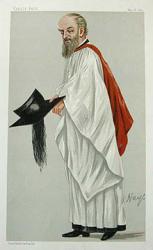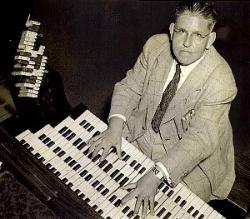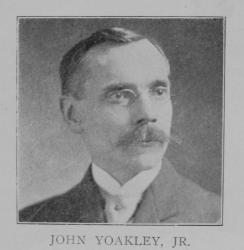Planning worship?
Check out our sister site, ZeteoSearch.org,
for 20+ additional resources related to your search.
- |
User Links
Person Results
Ralph Vaughan Williams

1872 - 1958 Person Name: R. Vaughan Williams Composer of "MAGDA" in The Hymnal of the Protestant Episcopal Church in the United States of America 1940 Through his composing, conducting, collecting, editing, and teaching, Ralph Vaughan Williams (b. Down Ampney, Gloucestershire, England, October 12, 1872; d. Westminster, London, England, August 26, 1958) became the chief figure in the realm of English music and church music in the first half of the twentieth century. His education included instruction at the Royal College of Music in London and Trinity College, Cambridge, as well as additional studies in Berlin and Paris. During World War I he served in the army medical corps in France. Vaughan Williams taught music at the Royal College of Music (1920-1940), conducted the Bach Choir in London (1920-1927), and directed the Leith Hill Music Festival in Dorking (1905-1953). A major influence in his life was the English folk song. A knowledgeable collector of folk songs, he was also a member of the Folksong Society and a supporter of the English Folk Dance Society. Vaughan Williams wrote various articles and books, including National Music (1935), and composed numerous arrangements of folk songs; many of his compositions show the impact of folk rhythms and melodic modes. His original compositions cover nearly all musical genres, from orchestral symphonies and concertos to choral works, from songs to operas, and from chamber music to music for films. Vaughan Williams's church music includes anthems; choral-orchestral works, such as Magnificat (1932), Dona Nobis Pacem (1936), and Hodie (1953); and hymn tune settings for organ. But most important to the history of hymnody, he was music editor of the most influential British hymnal at the beginning of the twentieth century, The English Hymnal (1906), and coeditor (with Martin Shaw) of Songs of Praise (1925, 1931) and the Oxford Book of Carols (1928).
Bert Polman
Ralph Vaughan Williams
Frederick C. Atkinson
1841 - 1896 Person Name: Frederick Cook Atkinson (1841-1897) Composer of "MORECAMBE" in The University Hymn Book Born: August 21, 1841, Norwich, Norfolk, England. Died: November 30, 1896, East Dereham, Norfolk, England. As a boy Atkinson was a chorister and assistant organist at Norwich Cathedral. In 1867 he graduated with a Bachelor of Music degree from Cambridge and then served as organist and choirmaster in St. Luke's Church, Manningham, Bradford. He also held that position at Norwich Cathedral and at St. Mary's Parish Church in Lewisham. Atkinson wrote hymn tunes, anthems, and complete Anglican services, as well as songs and piano pieces.
Psalter Hymnal Handbook, 1988
Frederick C. Atkinson
Henry Montagu Butler

1833 - 1918 Person Name: Henry Montagu Butler (1833- ) Author of "'Lift up your hearts!' We lift them, Lord, to thee" in The University Hymn Book Butler, Henry Montagu, D.D., was educated at Trinity College, Cambridge, and graduated B.A. as Senior Classic in 1855, and became a Fellow of his college in 1855. Taking Holy Orders in 1859, he became Head Master of Harrow School in 1859. This position he held until 1885, when he was preferred to the Deanery of Gloucester. He held the deanery for a short time only, and became Master of Trinity College, Cambridge, on the death of Dr. W. H. Thompson in 1886. Dr. Butler has also held the important appointments of Hon. Chaplain to the Queen; Examining Chaplain to Archbishops Tait and Benson; Select Preacher at Oxford, 1882; and Preb. of Holborn in St. Paul's Cathedral. Dr. Butler edited the 3rd edition of Hymns for the Chapel of Harrow School, 1865, and the 4th edition, 1881. To the Harrow Hymn Book Dr. Butler contributed:—
1. Art thou the Healer that should come. St. John Baptist.
2. Ask and ye surely shall receive. Prayer. Last St. by J. Montgomery.
3. Jesus died for us and rose again. Death and Burial.
4. Lovest thou Me ? the risen Saviour cried. St. Peter.
5. 0 merciful and holy. Founder's Day.
6. Rejoice today with one accord. Founder's Day.
7. The night of agony hath passed. Good Friday.
8. Where shall we find our mightiest saint? St. Paul.
Of these Nos. 2 and 3 were given in the 3rd edition of the Harrow Hymn Book, 1865, and the rest were added in 1881. Nos. 3, 5, 6 and 8 are also in Hymns for the Use of Sherborne School, 1888, Nos. 5 and 6 being much altered. Dr. Butler's hymns are very lyrical and spirited and are admirably suited to their purpose.
--John Julian, Dictionary of Hymnology, Appendix I. (1907)
Henry Montagu Butler
Walter Greatorex
1877 - 1949 Person Name: Walter Greatorex (1877-1949) Composer of "WOODLANDS" in Church Hymnary (4th ed.) Walter Greatorex (b. Mansfield, Nottinghamshire, England, 1877; d. Bournemouth, Hampshire, England, 1949) was director of music at Gresham's School, Holt, Norfolk, where from 1911-1936. Before that he served as assistant music master at Uppingham School in Rutland (1900-1910). Greatorex's musical education began as a chorister at King's College, Cambridge, England, and he received his university music training at St. John's College, Cambridge.
Bert Polman
Walter Greatorex
John Barnard
b. 1948 Person Name: John Barnard (born 1948) Composer of "YANWORTH" in Hymns for Today's Church (2nd ed.)
John Barnard
Alfred M. Smith
1879 - 1971 Composer of "SURSUM CORDA" in The Hymnal of the Protestant Episcopal Church in the United States of America 1940 Alfred Morton Smith (1879-1971) was born in Jenkintown, Pennsylvania, and studied at the University of Pennsylvania (B.S. 1901) and Philadelphia Divinity School (B.D. 1905; S.T.B. 1911). An Episcopalian, Smith was ordained a deacon (1905) and a priest (1906). After a short time in Philadelphia and Long Beach, California, he served at St. Matthias Church, Los Angeles, for ten years. He was a chaplain in the U.S. Army during World War I, returning to Philadelphia in 1919, where he spent the remainder of his career. He retired in 1955. In 1963, Smith moved to Drium Moir, Chestnut Hill, Pennsylvania, and in 1968 to Brigantine, New Jersey, where he remained until his death.
--The Presbyterian Hymnal Companion, 1993
Alfred M. Smith
Clarence Kohlmann

1891 - 1944 Composer of "[“Lift up your hearts!” We lift them, Lord, to Thee]" in Hymns We Love Born: September 24, 1891, Philadelphia, Pennsylvania.
Died: December 13, 1944, Philadelphia, Pennsylvania.
Buried: Greenwood Cemetery, Philadelphia, Pennsylvania.
An organist and composer, Kohlmann wrote for the organ, piano, and hand bells. In 1929, he recorded four organ works, including The Storm, for inventor Thomas Edison. He was also a fixture at the Great Auditorium in Ocean Grove, New Jersey, where he played the organ for the last two decades of his life.
--www.hymntime.com/tch/
Clarence Kohlmann
John Yoakley

1860 - 1929 Person Name: John Yoakley, 1860-1932 Composer of "ALL SOULS" in Common Praise John Yoakley was born in Portsmouth, Ohio, May 27, 1860. His father was born in Dublin and emigrated to Ohio, where he was organist at All Saints in Portsmouth. His grandfather, William, was also a musician and composer. John Yoakley was a proficient organist and also composed several works for piano and voice. He was a member of the Episcopal Church. He died October 16, 1929 in Cincinnati.
Jan Fergin (relative) via email
John Yoakley


 My Starred Hymns
My Starred Hymns


